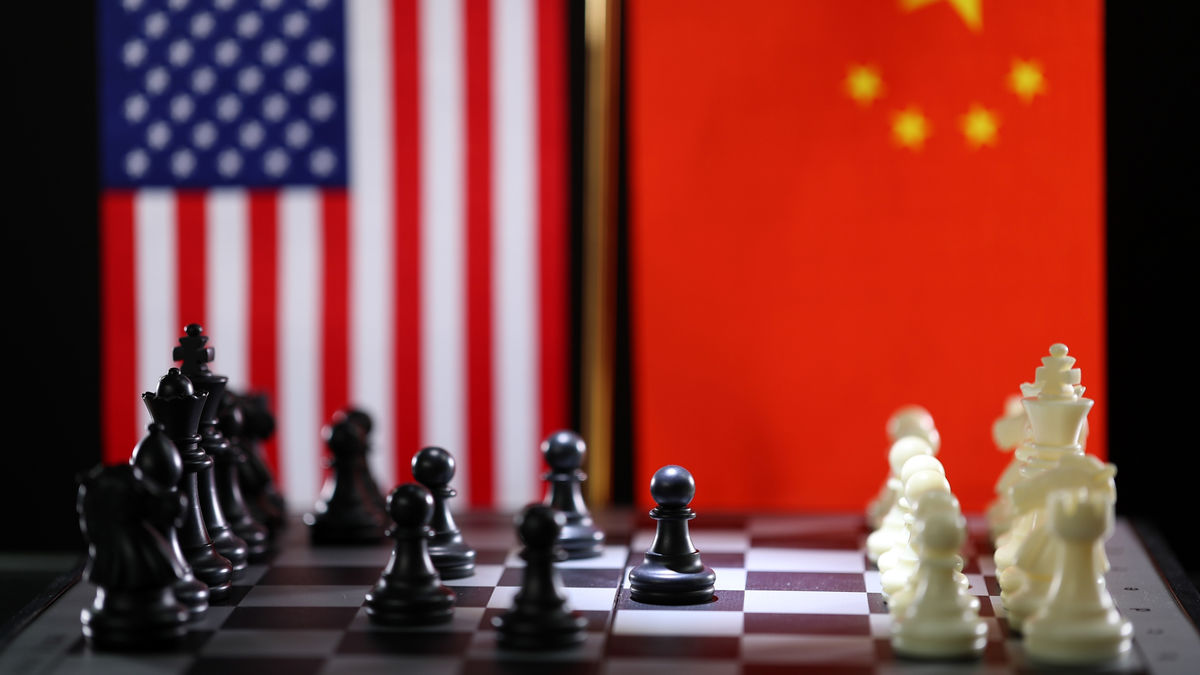China currently has 975,000 troops on standby. In the field of navy, the country has the largest fleet in the world in number, which includes 355 ships and submarines.
The ability to accurately strike ground targets from submarines using cruise missiles in the near future, or to try to increase anti-submarine warfare capabilities are among China’s efforts to modernize its military capabilities.
In aerial field, the country’s air force is the largest in the region and the third largest in the world, with more than 2,800 aircraft, of which 2,250 are fighter jets.
China has also paid special attention to missile capabilities.
The People’s Army missile force organizes, directs, trains, and equips ground-based nuclear and conventional ground-based missile forces, related support forces, and missile bases. In 2020, the Chinese military missile force launched its long-term modernization plans to increase its “strategic deterrence” capabilities.
In addition, Beijing is developing intercontinental ballistic missiles that significantly improve the missile capability of its nuclear warhead. China’s missile force is stepping up its DF-26 medium-range ballistic missiles, which are capable of conventional and nuclear strikes against ground targets, as well as conventional attacks against naval targets.
According to the US Department of Defense, the rapid expansion of China’s nuclear power will enable the country to have about 700 nuclear warheads by 2027, which will reach at least 1,000 by 2030.
What matters is how the United States assesses China’s efforts to modernize its military capabilities. From the US point of view, is China’s move to develop its military capabilities merely a defensive or balancing act against China’s rivals and enemies? How the United States responds to this question determines the future of Sino-US relations, as US officials ultimately respond based on their assessment of China’s military doctrine.
The US assessment of China’s military strategy is that it is moving away from a “defensive” past and pursuing an “aggressive” policy. According to this assessment, the Chinese government has a grand national strategy in which it seeks to reform the current international order.
It is in the context of this grand strategy that the Chinese government seeks its own military modernization. In this regard, the US Department of Defense in 2021, published a report on developments in China’s military affairs, which confirms that the main US perception of China’s military policies is supremacy.
They believe that the goal of China’s Greater National Strategy is to achieve the “Great Revival of the Chinese Nation” by 2049 in order to gain parity or superiority over US global power and influence, dismantle US security alliances and partnerships in the Indo-Pacific region, and reform international order in such manner that it is more beneficial to China’s national interests and authoritarian system.
The fact that the United States claims that China is seeking a change in the overall international order means that in the US assessment of China’s development of its military capabilities, hegemony is more prominent than balancing.
Of course, Chinese leaders have also defined an international role for their troops. Indeed, Chinese leaders see an increase in the military presence of the army as “necessary to create a favorable international environment” in line with the strategic goal of national revival.
It was on this basis that in the revision of China’s National Defense Law in 2020, the military was required to defend the interests of overseas development. According to US officials, such developments have made China’s movements in its periphery bold, especially in Taiwan, the South and East China Seas, and the border areas with India.
While the US view of China’s military developments is an aggressive one, there is no doubt that Washington is also pursuing aggressive policies. Joe Biden’s announcement of US readiness for war if China invades Taiwan is just one of the hallmarks of US policy aggression. Increasing US military presence in China’s periphery and strengthening ties with Japan and regional allies are other notable features.










0 Comments